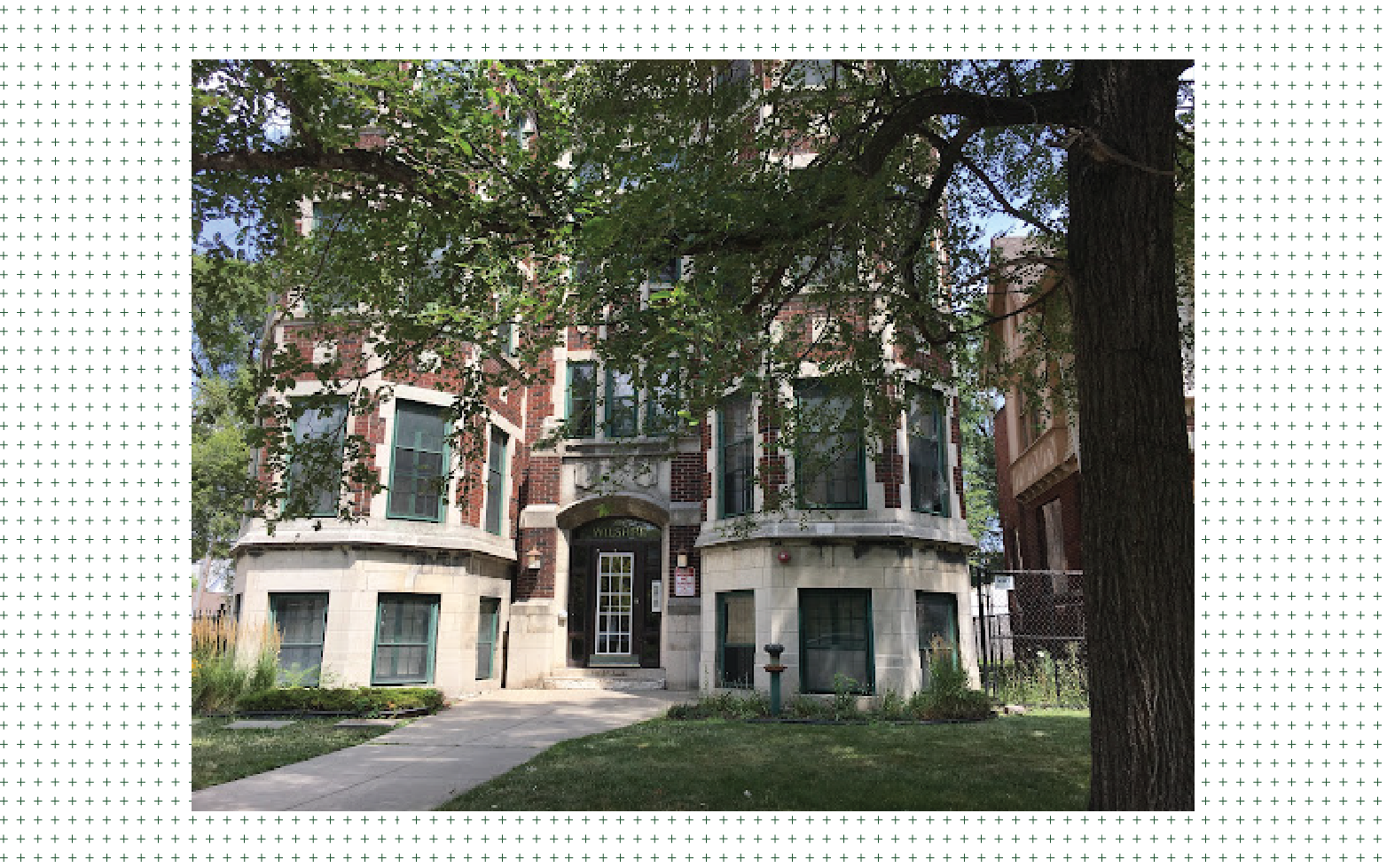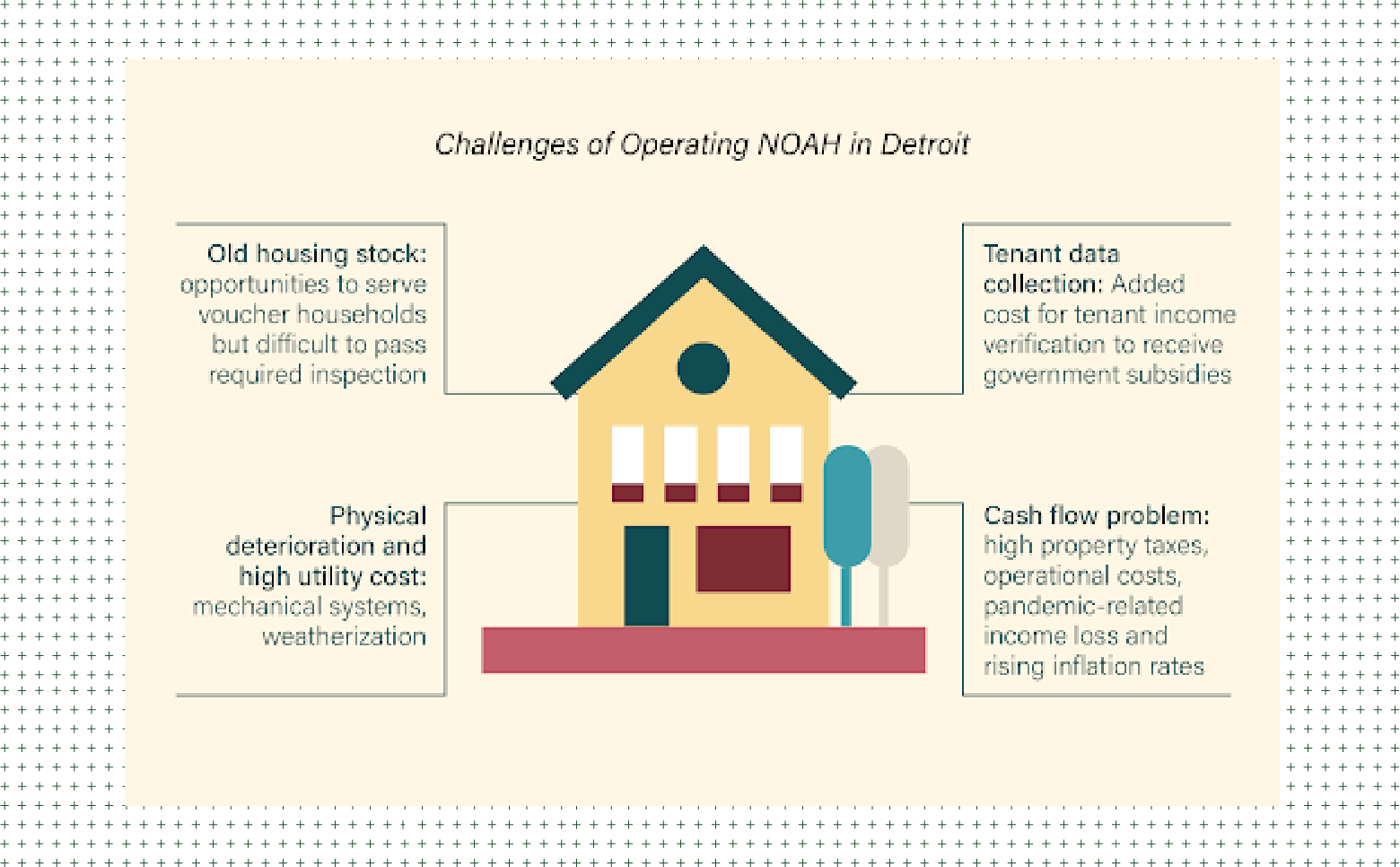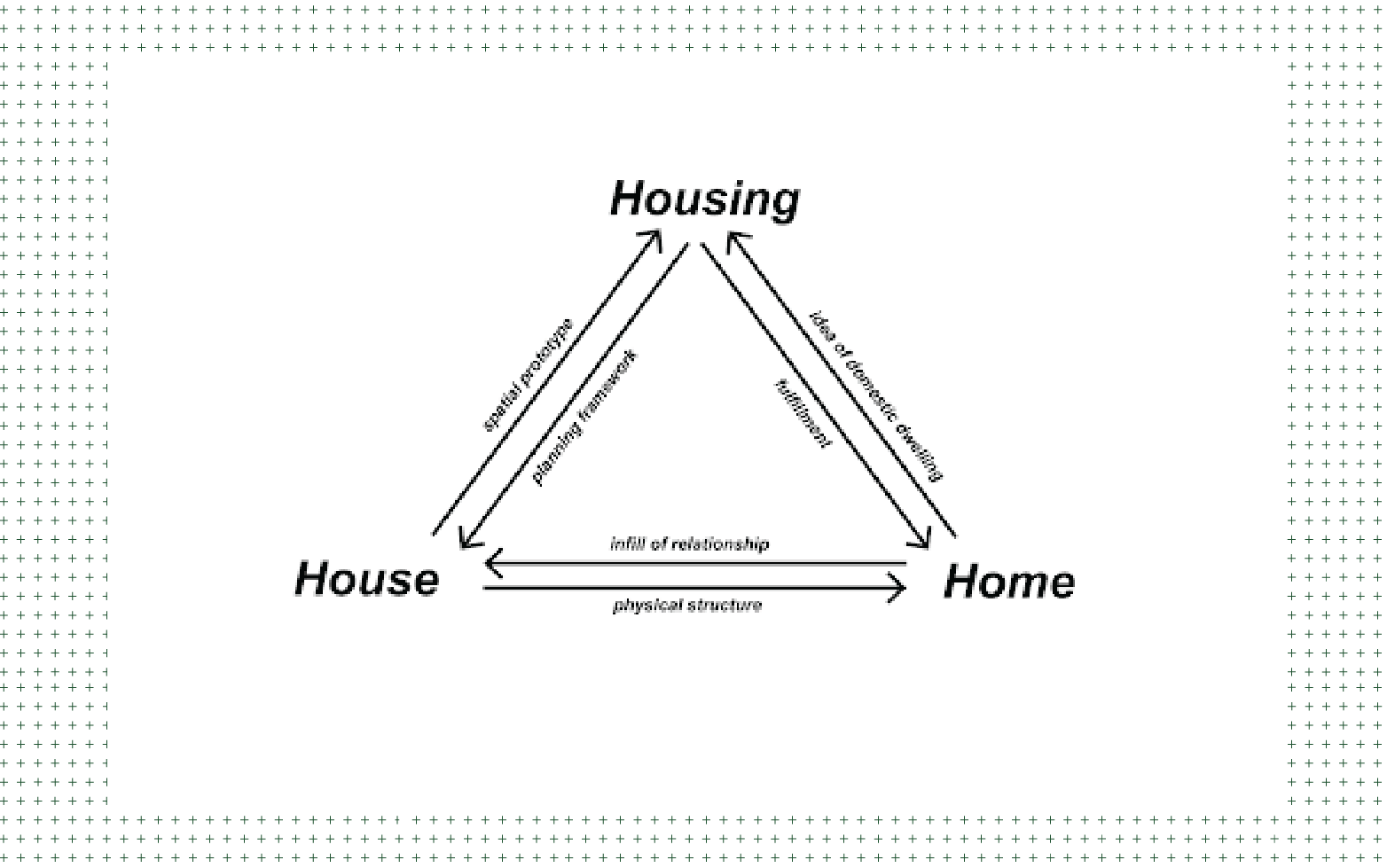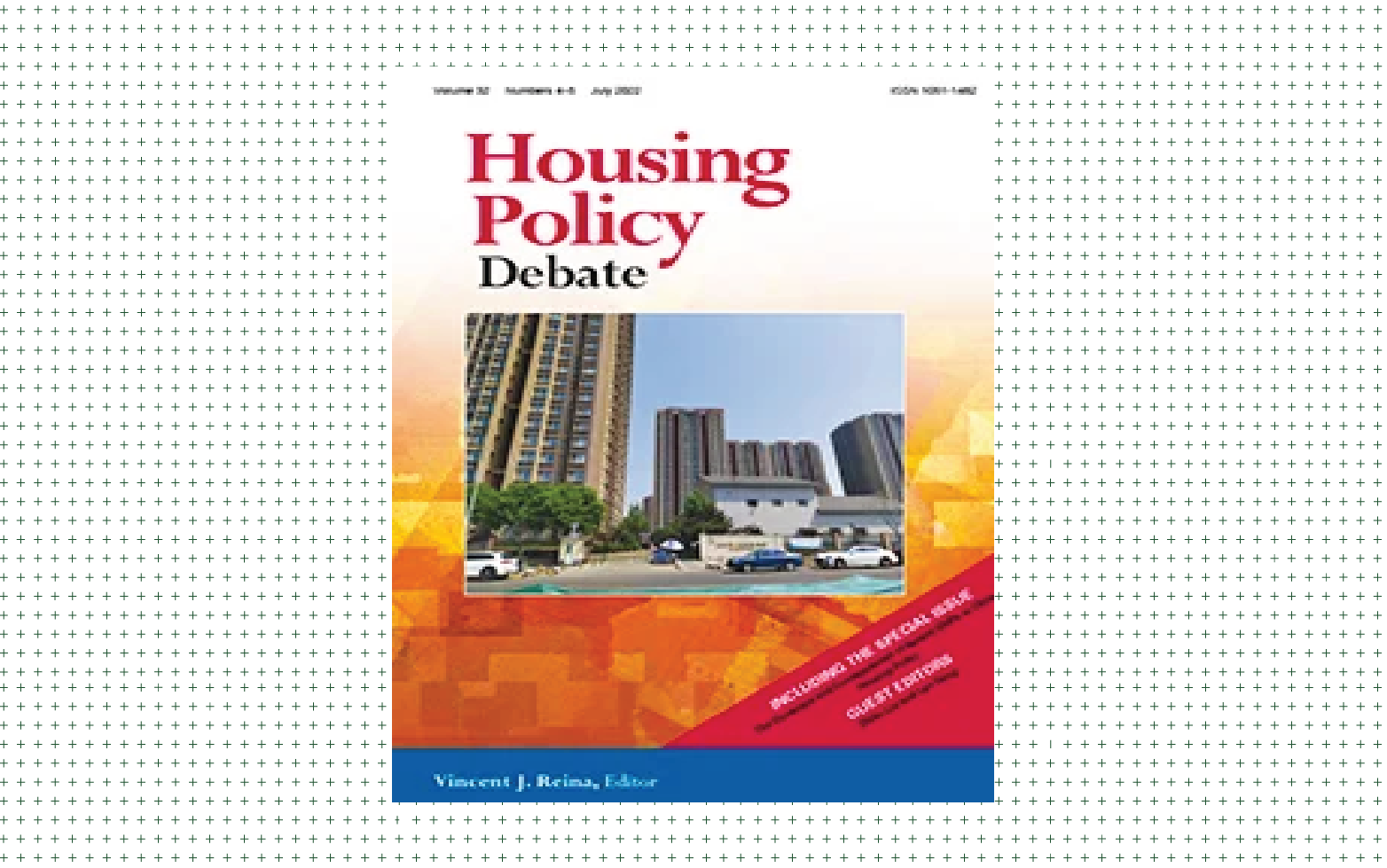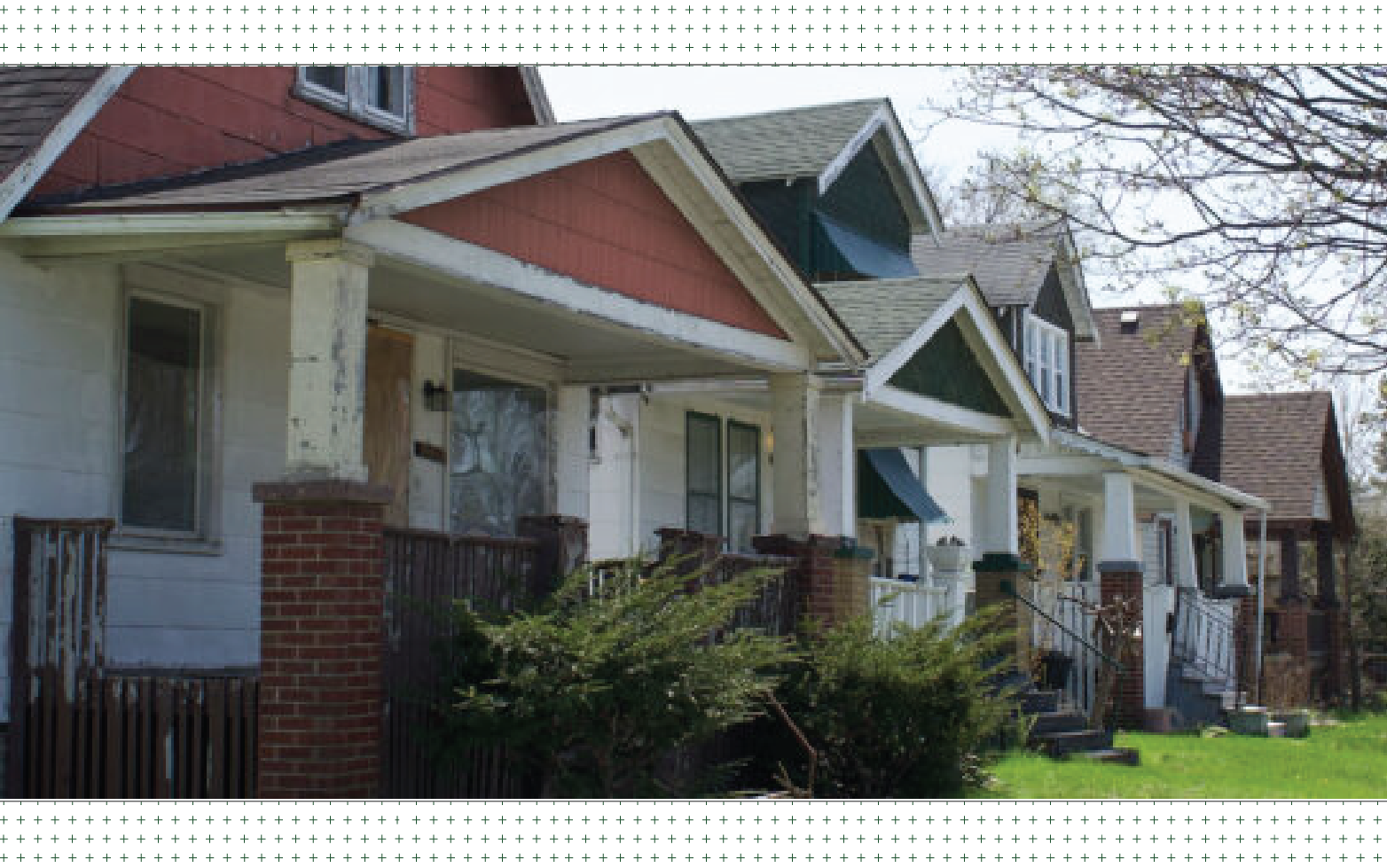Equitable Development & Preservation with Enabling Financial Structures

How can research and design practices help identify alternative development and redevelopment models that would offer opportunities to households of different socioeconomic backgrounds and preserve existing affordable housing to ensure equitable distribution of costs and benefits?
How can we structure public and private partnerships and identify innovative financial solutions to enable those developments?
How can the U.S. learn from other countries in the provision of affordable housing and equitable development?
How might tools such as land-banks and community land trust be leveraged towards new models of homeownership and financing?
Design: Osi Art Apartments at West End
Volume One Design, Lars Gräbner & Christina Hansen
The The Osi Art Apartments at West End will be one key node of the ‘WEST END GALLERY DISTRICT,’ a UNESCO Neighborhood City of Design partner, envisioned as a local and regional destination celebrating arts and culture and nurtures creative entrepreneurs.
Acting as a Neighborhood and Retail anchor the building will house a 1,856 sqft Art gallery featuring local, national and international artists and small retail spaces for Detroit’s emerging small businesses. However, the primary intention of this design is to provide much needed affordable housing units. The 30 compact units offer all amenities needed for a contemporary life style. The nesting of the units allow for generous proportions of space within the units and create a clean, built-in character of the open kitchens thus appearing larger than they are. Each apartment has an about 8’ x 8’ balcony to extend the living space and quality of life. The units also take advantage of the orientation of the site, which allows for a minimum of at least three hours of direct sunlight in each space of the building – a necessity for a healthy living environment and reduction of energy consumption.
Research: Preserving Low-Income Housing in Detroit
Lan Deng
This study examines the efforts to preserve the Low-Income Housing Tax Credits (LIHTC) projects that are at risk from their year-15 transition in Detroit, Michigan. Using the preservation framework recommended by the National Housing Trust, the paper first identifies the risks LIHTC projects in Detroit face. It then reports what major institutional actors in LIHTC developments have done in addressing those risks, with particular attention to the roles these actors have played in shaping preservation needs and actions. The study concludes by discussing what broader lessons can be learned from Detroit with regard to the preservation of LIHTC projects nationwide.
Teaching: Urban and Regional Planning Capstone Studio
“Preserving Naturally Occurring Affordable Housing in Detroit: A Case Study of Oakman Boulevard Community along the Joe Louis Greenway” is a capstone project for Master of Urban & Regional Planning Students in winter 2023. The project addresses one of the most critical housing challenges the United States faces today, the preservation of Naturally Occurring Affordable Housing (NOAH). NOAH properties are market housing whose rents happen to be affordable to low- and moderate-income households. In a country where government subsidized affordable housing is in short supply, preserving NOAH properties is critical in mitigating the housing affordability crisis and preventing resident displacement. Working with the City of Detroit Housing and Revitalization Department, students in the capstone project conducted extensive property and policy research as well as community-engagement activities to assess the risks that small multi-family NOAH properties and develop recommendations to preserve them. The project won the Outstanding Graduate Student Project in the 2023 Planning Excellence Awards by The Michigan Association of Planning.
The team of students included Alexis Marie Farrell, Anthony Phan Bui, Christian Carroll, David Kevin Elam, Nicholas Robert Hill, Maria Garcia Reyna, Maya Joy Gingerich Baker, Michelle Marin, Melika Belhaj, Tianhong Ge, Yifei Sun. Lan Deng, professor of urban and regional planning, and Ph.D. student Rand Makarem served as advisors.
Research: Housing Affordability, Subsidized Lending and Cross-City Variation in the Performance of China’s Housing Provident Fund Program
Lan Deng, Xiang Yan, Jie Chen
This study examines the cross-city variation in the performance of China’s Housing Provident Fund (HPF) program, a collective saving scheme that provides subsidized lending to support participants’ home purchases. It finds that while the program as a whole is limited in both participation and benefit provision, the level of HPF activities has differed across localities. Panel-data analysis of HPF lending in seven cities reveals that local housing affordability was an important determinant of who benefited from the program. Rising housing price increased the demand for HPF loans. But if price rose too high relative to household income, the share of participants who used HPF loans declined. This shows that as the program currently operates, expanding HPF participation would only increase the inequality in the distribution of program benefits. Finally, we did not find evidence for the counter-cyclic effects that HPF lending was expected to have in relation to bank lending. These findings have important implications for the program’s future reform.
Teaching: Domestic Collectives Graduate Seminar
Faculty: Sharon Haar
What do our homes say about us as individuals and as a society, and how is this expressed through architecture and urbanism? In Domestic Collectives, students look broadly at the topic of housing, the building typology where the space of our domestic lives (the house) and the collective (the community or city) meet. Housing is defined equally by universals such as the need for shelter and specifics such as location. It is also created through the procedures and protocols produced by economics, demographics, politics, race, and gender. While no one seminar can offer a comprehensive take on housing, Domestic Collectives will offer multiple frames of analysis. What makes a house a home? What makes a house housing? What are the impediments to providing safe, equitable, and affordable housing today? How do we study housing as simultaneously a project of architecture and an object of real estate? Domestic Collectives will weave together multiple themes in recognition of the intersectional nature of “housing.” It will open the traditional understanding of the morphology and typology of housing to contemporary discourses of feminism, gender, and queer space; the reshaping of the city by neoliberalism; and urgent conversations around social and spatial justice.

